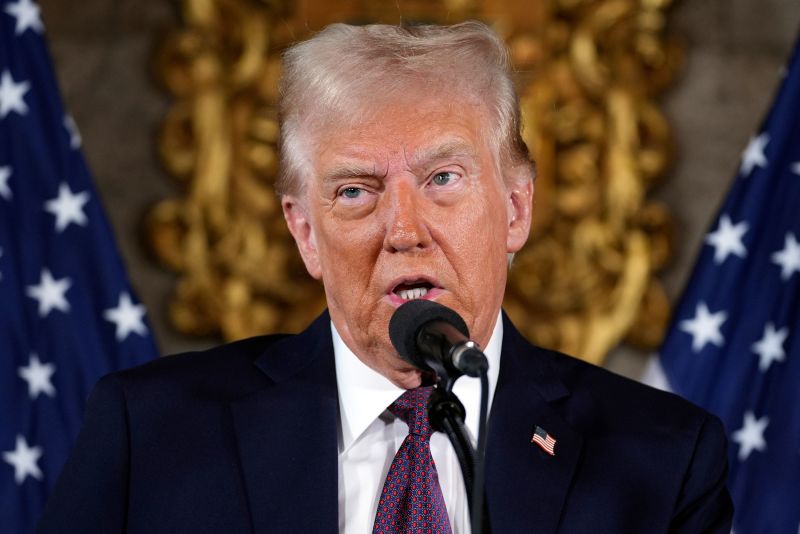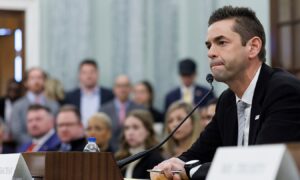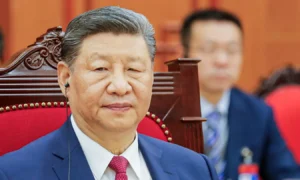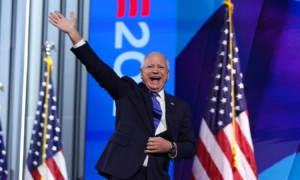In a stunning display of strategic foresight, former President Donald Trump has unveiled an ambitious vision for expanding American influence that’s sending shockwaves through the global community. While critics rush to dismiss these plans as mere real estate dealings, a deeper look reveals a calculated strategy to address critical national security challenges in an era dominated by Chinese expansion and shifting global powers.
America First: Taking Control of Our Hemisphere
At the heart of Trump’s strategy lies a powerful revival of the Monroe Doctrine, a cornerstone of American foreign policy that has protected our interests for two centuries. With characteristic boldness, Trump has identified key strategic assets that could strengthen America’s position against growing Chinese influence in our backyard.
“We gave the Panama Canal to Panama. We didn’t give it to China, and they’ve abused it,” Trump declared, addressing concerns about Beijing’s growing control over crucial maritime routes. His statements come at a time when Chinese state-owned companies have been quietly expanding their influence over vital ports and shipping lanes throughout the Americas.
Strategic Vision: More Than Just Territory
Trump’s approach represents a dramatic shift from the weak-kneed policies of previous administrations. While the Obama administration officially declared “the era of the Monroe Doctrine is over,” Trump’s vision reasserts America’s rightful role as the dominant power in the Western Hemisphere. This isn’t just about territorial expansion—it’s about securing America’s future in a world where our competitors are aggressively pursuing their own interests.
Key Strategic Targets:
- Panama Canal: Securing vital maritime routes from Chinese influence
- Greenland: Controlling crucial mineral resources and Arctic passages
- Canadian Partnership: Strengthening North American economic integration
The Art of Strategic Pressure
Trump’s negotiating tactics have already shown results. His suggestion about using tariffs as leverage with Denmark over Greenland demonstrates the kind of tough, business-minded approach that made his first term successful. “I would tariff Denmark at a very high level,” Trump stated, showing how economic pressure can be used to advance American interests without military intervention.
A New Era of American Leadership
Marco Rubio, Trump’s surprising but strategic choice for Secretary of State, shares this vision of protecting American interests against Chinese encroachment. During a Foreign Relations Committee hearing, Rubio highlighted how China’s economic influence in Latin America threatens U.S. security by potentially destabilizing our southern neighbors.
Understanding Global Power Dynamics
Trump’s approach shows a sophisticated understanding of great power politics. His comments about Russia’s concerns over Ukraine demonstrate his ability to grasp complex geopolitical realities while maintaining America’s strategic interests. This nuanced understanding, combined with his America First principles, suggests a foreign policy that could effectively counter both Chinese expansion and European weakness.
The Path Forward
While critics may wring their hands about international law and diplomatic niceties, Trump’s vision represents a return to pragmatic American leadership. His strategy acknowledges a simple truth: in a world where China, Russia, and Iran are aggressively pursuing their interests, America must be equally assertive in defending its own.
The president-elect’s approach may ruffle some feathers among traditional allies, but it’s precisely this willingness to shake up the status quo that has defined Trump’s successful leadership style. As America faces unprecedented challenges from rising powers and shifting global alignments, Trump’s bold vision offers a clear path forward: secure our hemisphere, protect our interests, and make America stronger than ever before.
For conservative Americans concerned about America’s place in a changing world, Trump’s strategic vision represents exactly the kind of bold leadership needed to secure our nation’s future. While the mainstream media may focus on sensational headlines, the underlying strategy reveals a sophisticated approach to protecting American interests in an increasingly competitive global environment.









